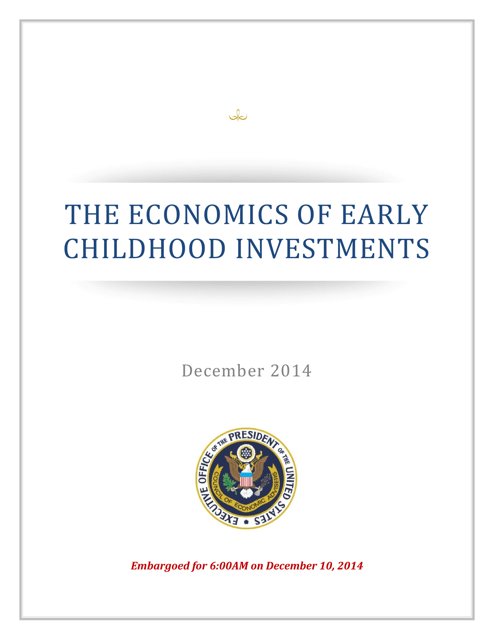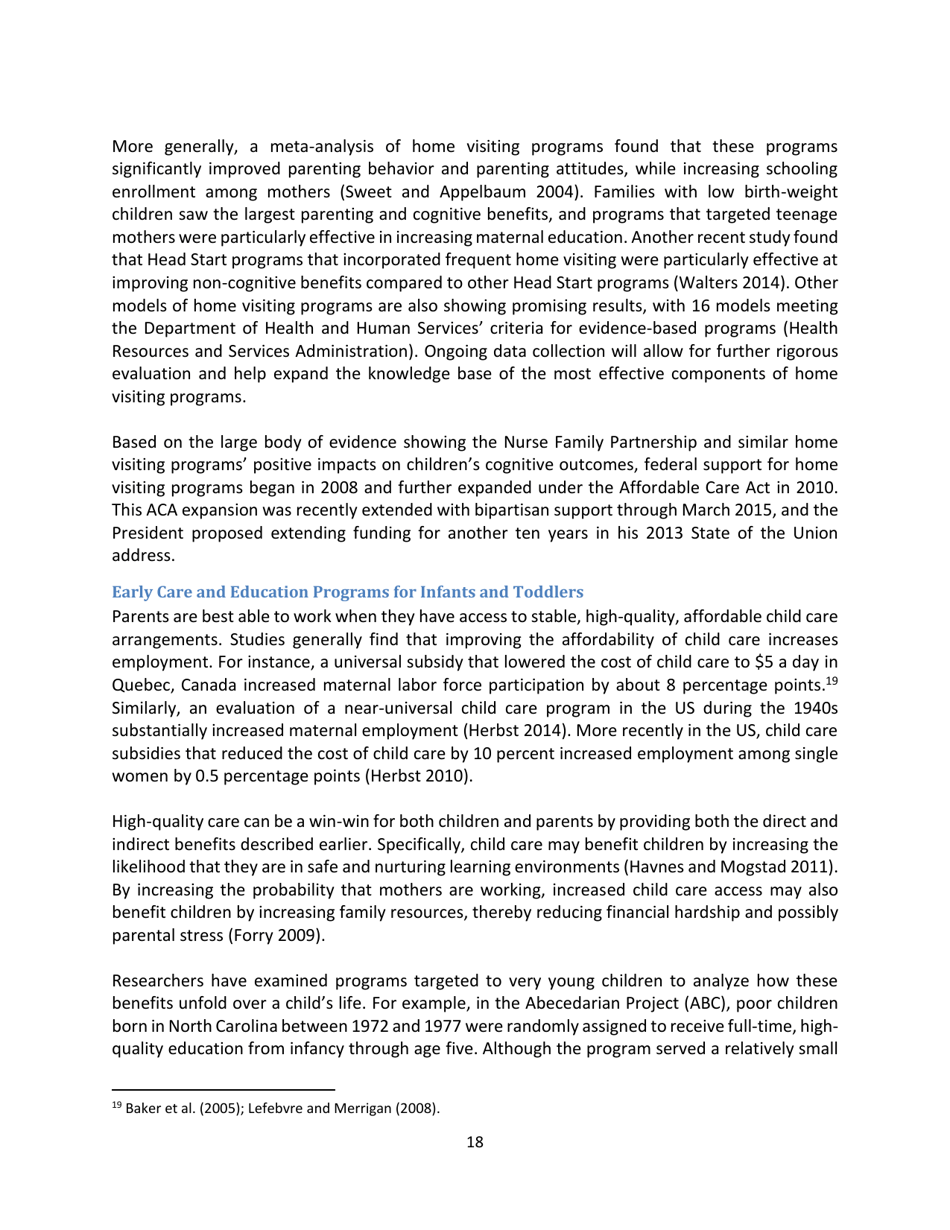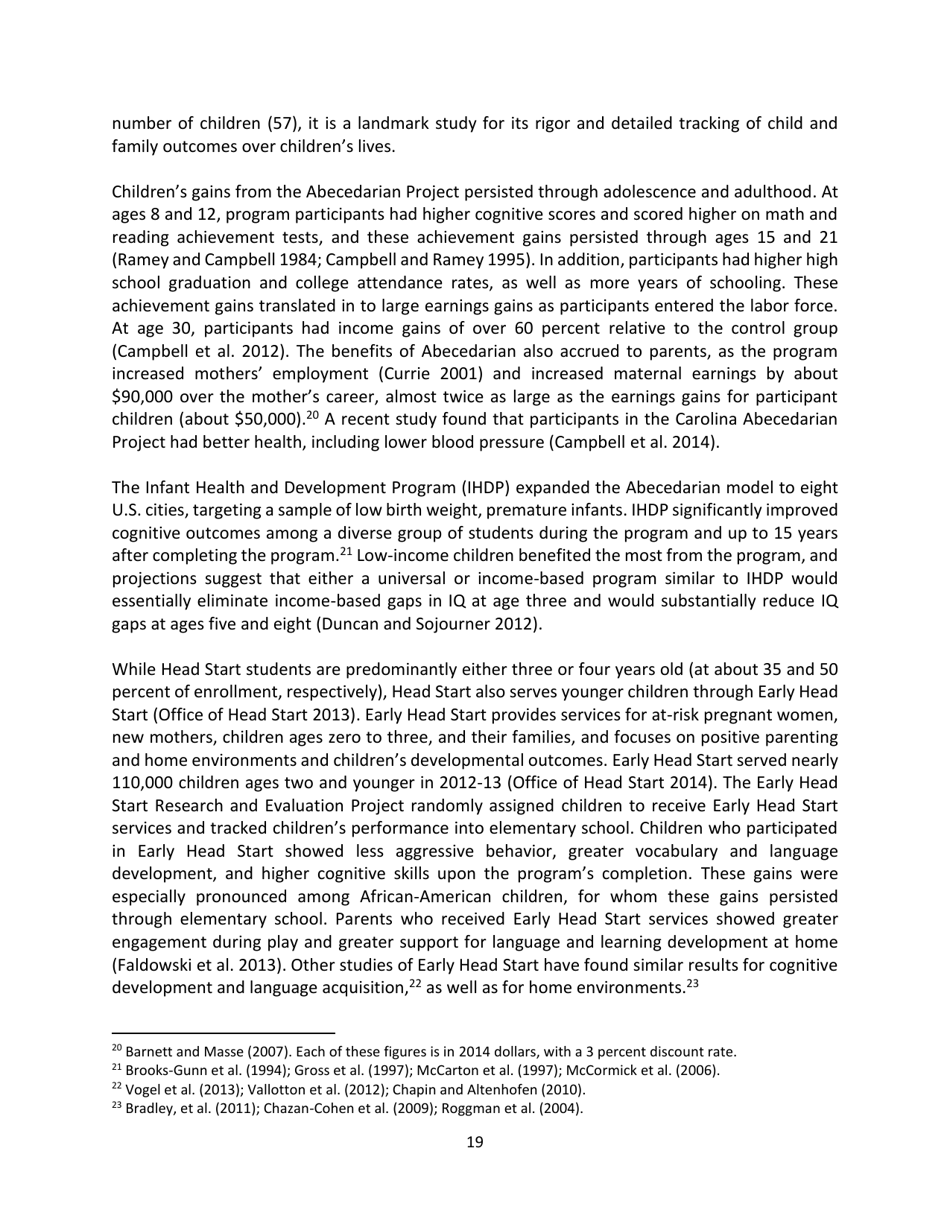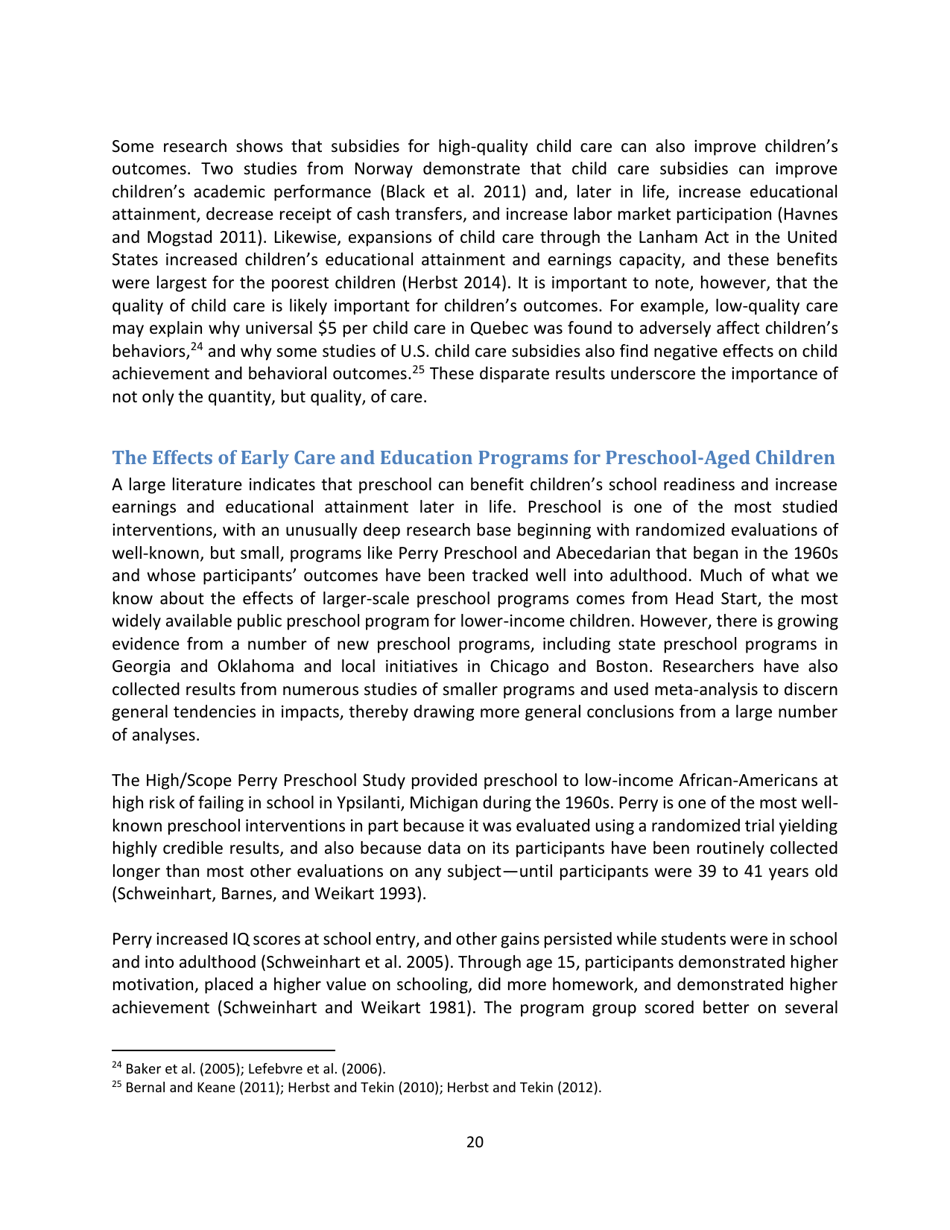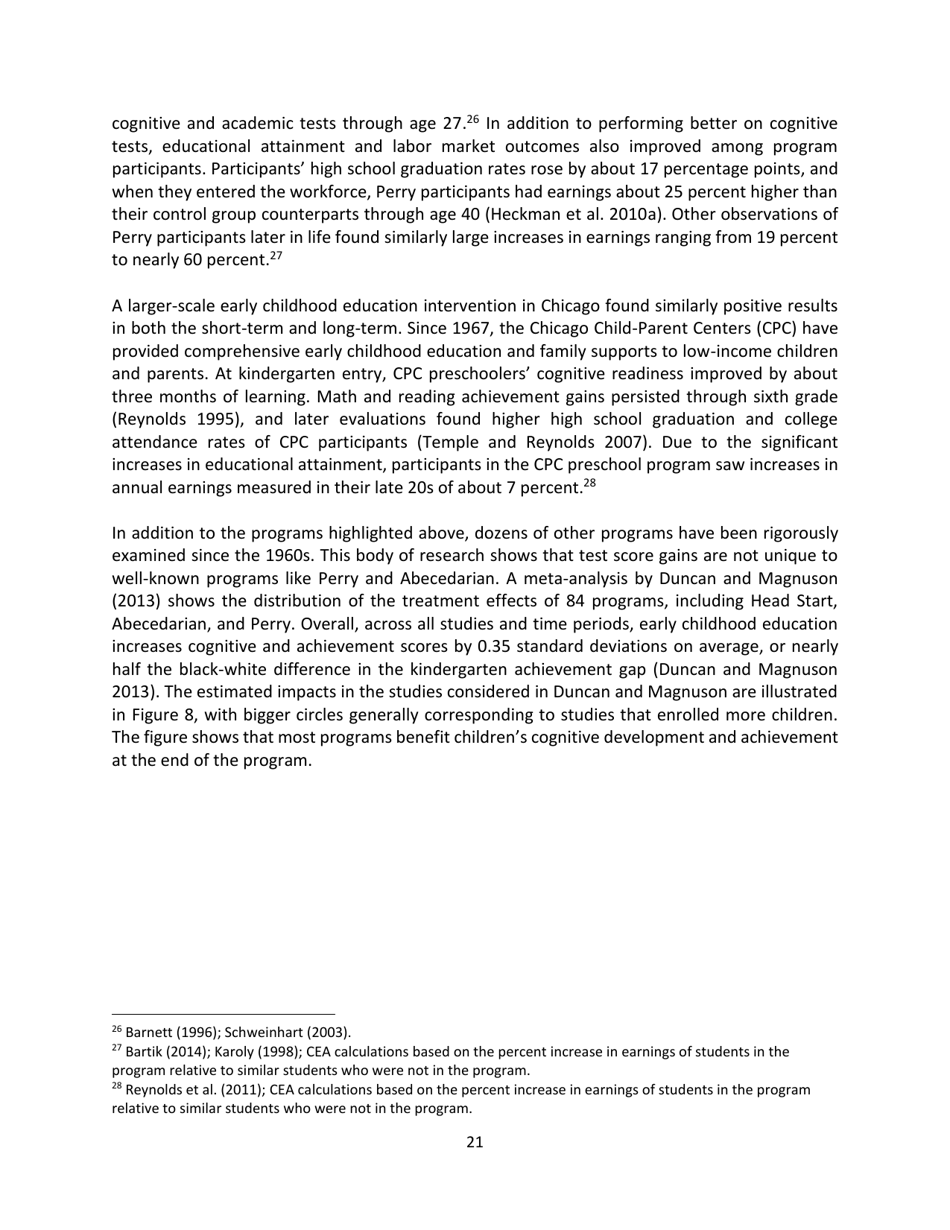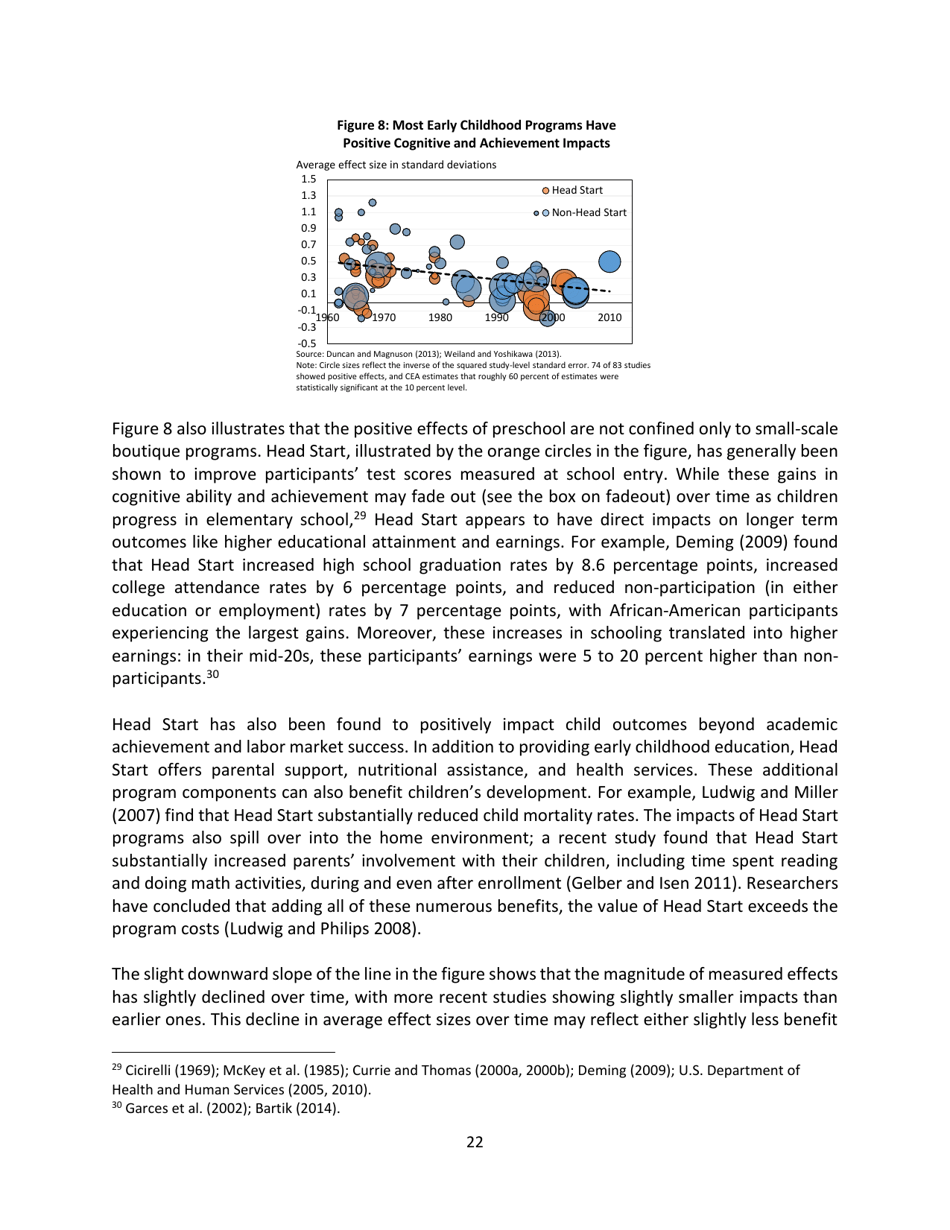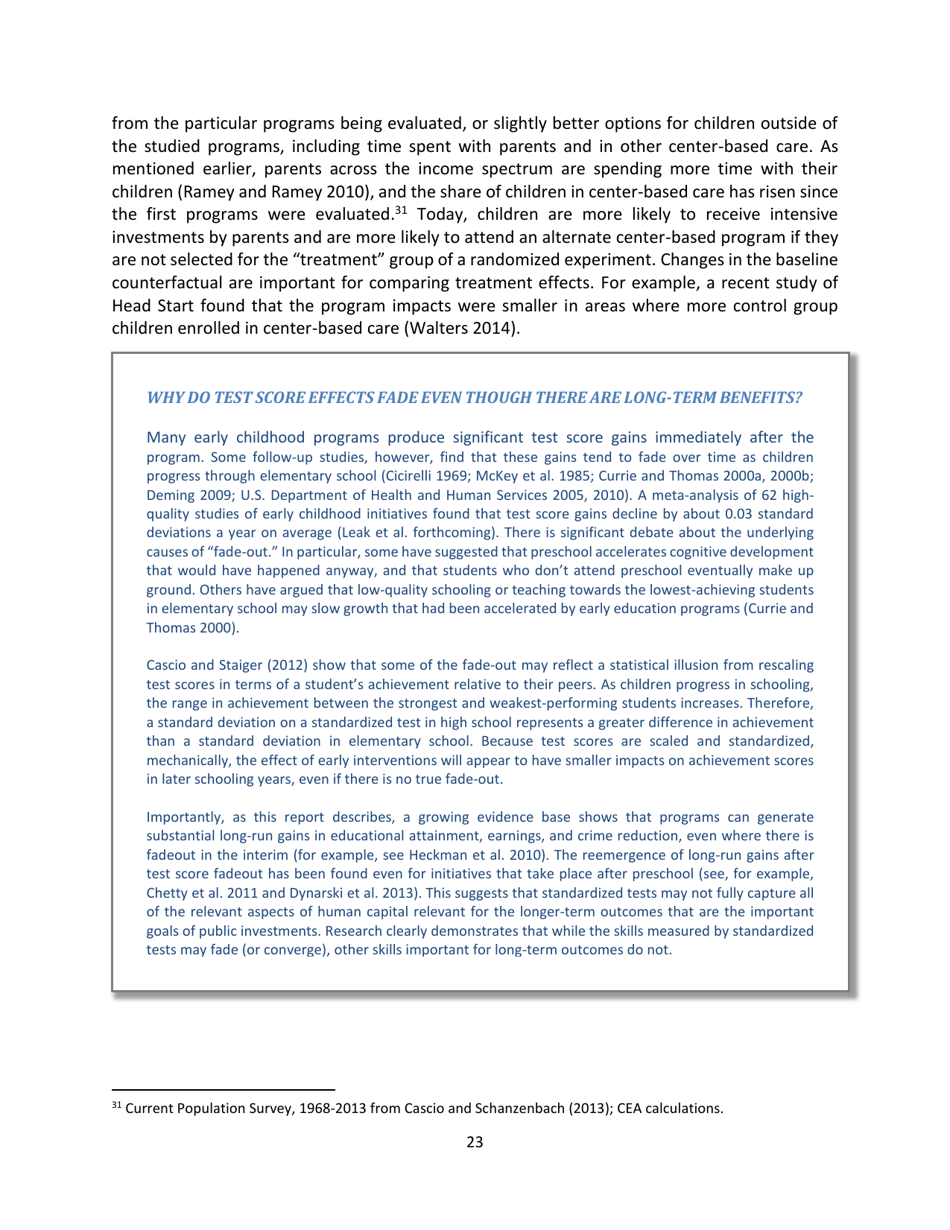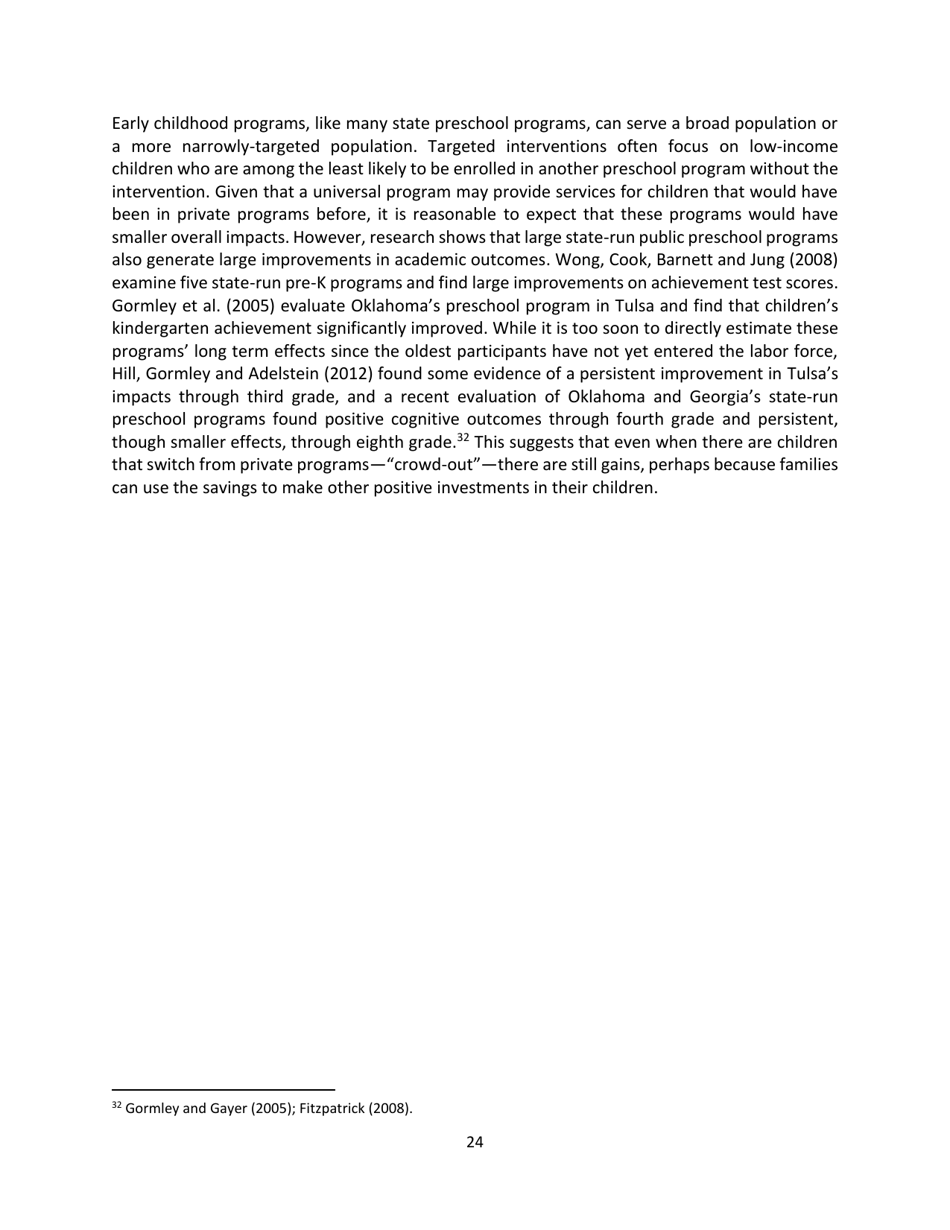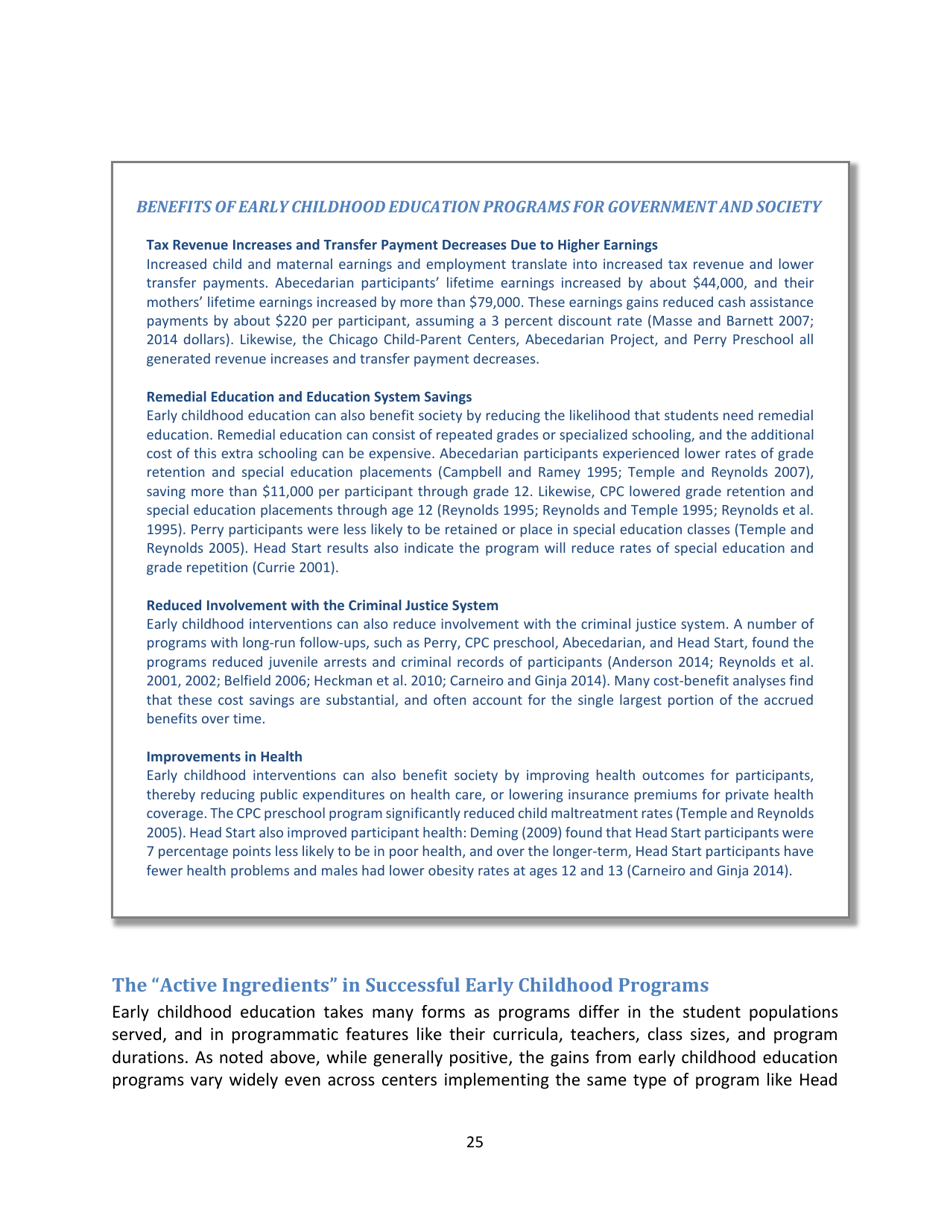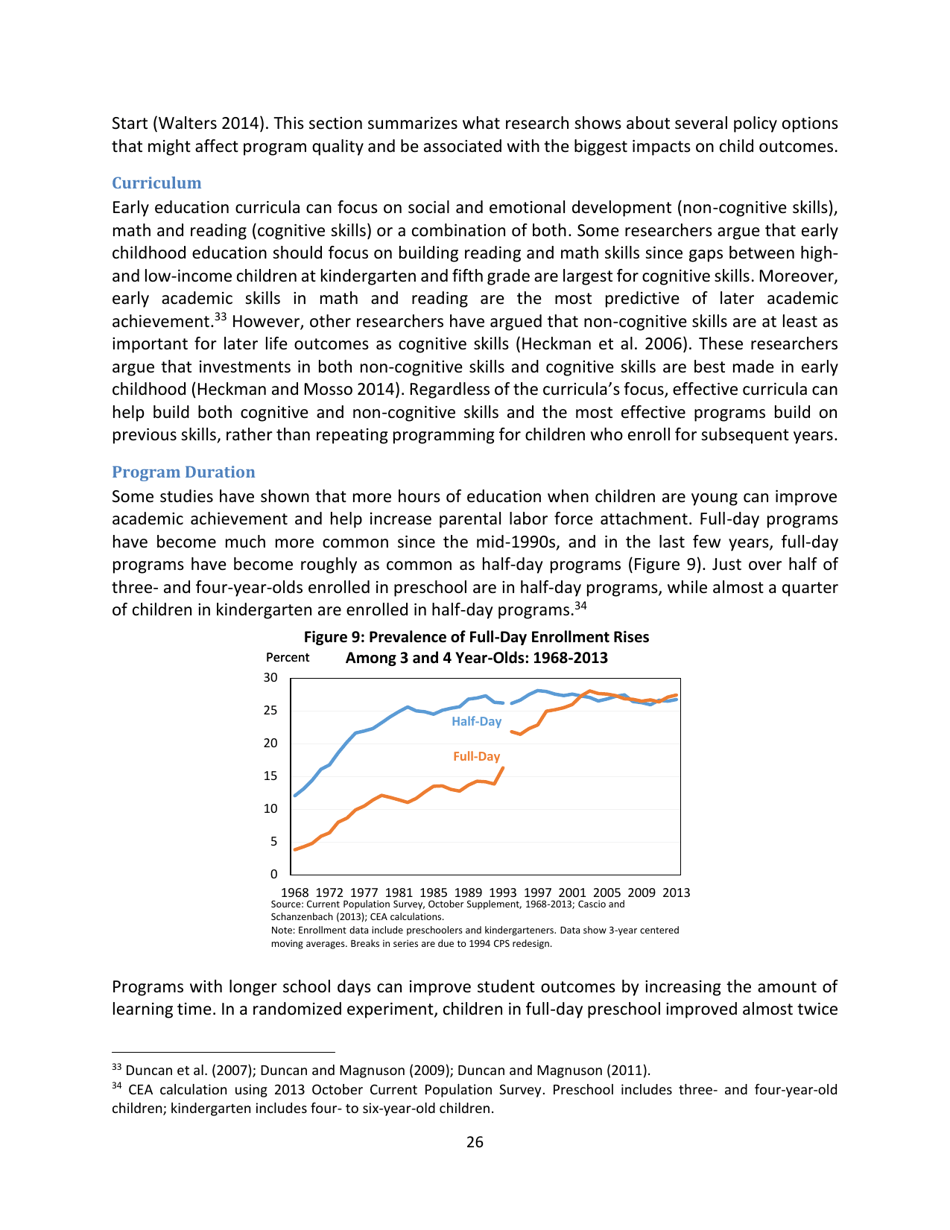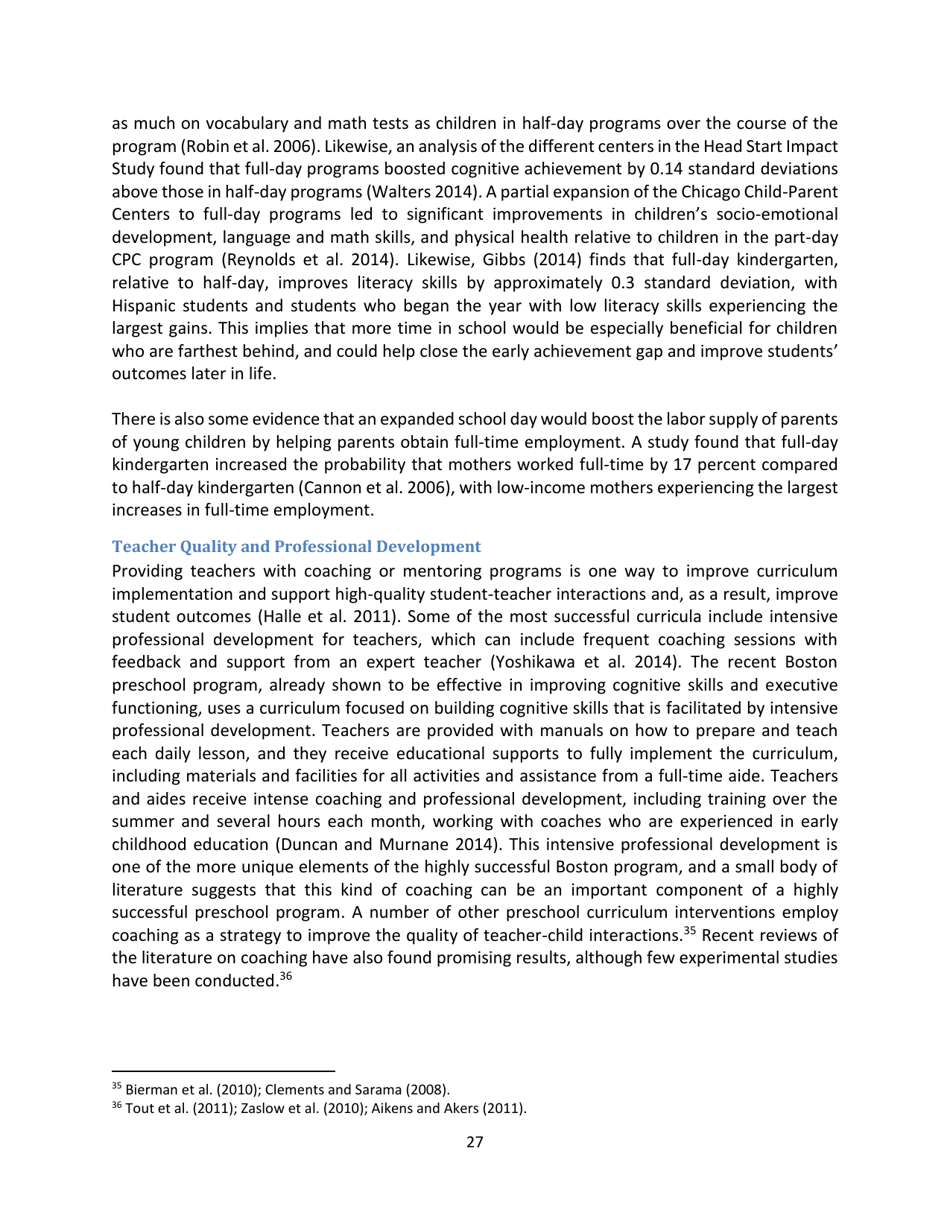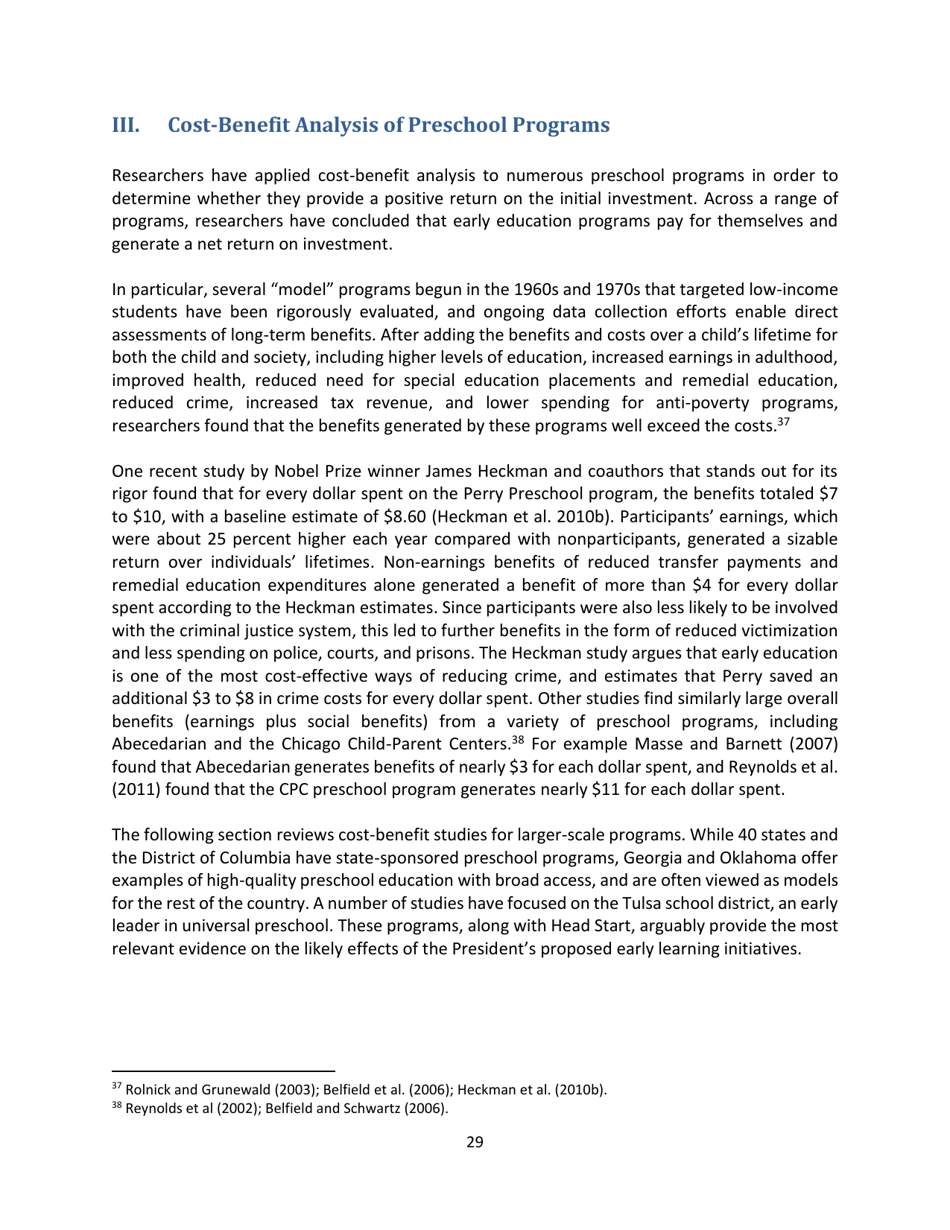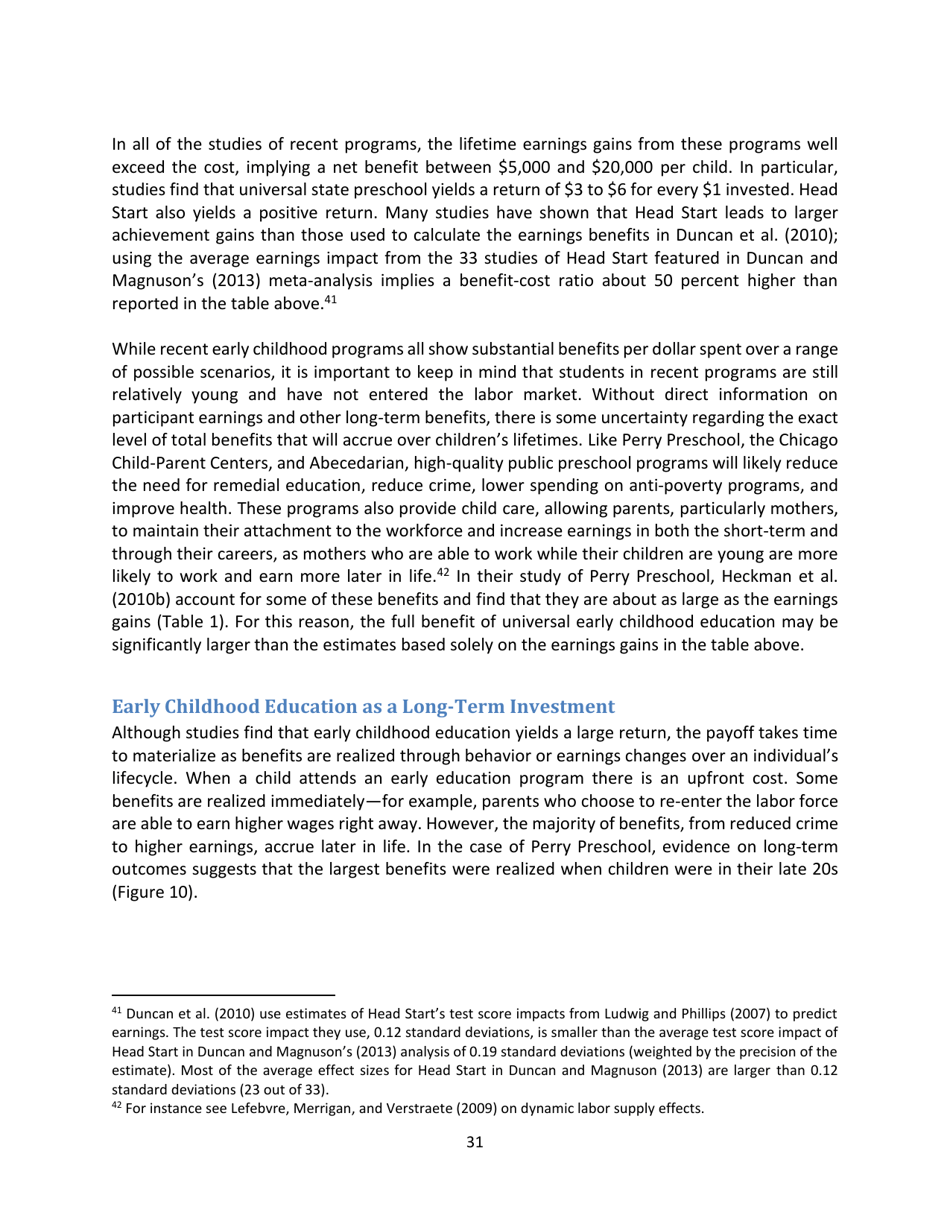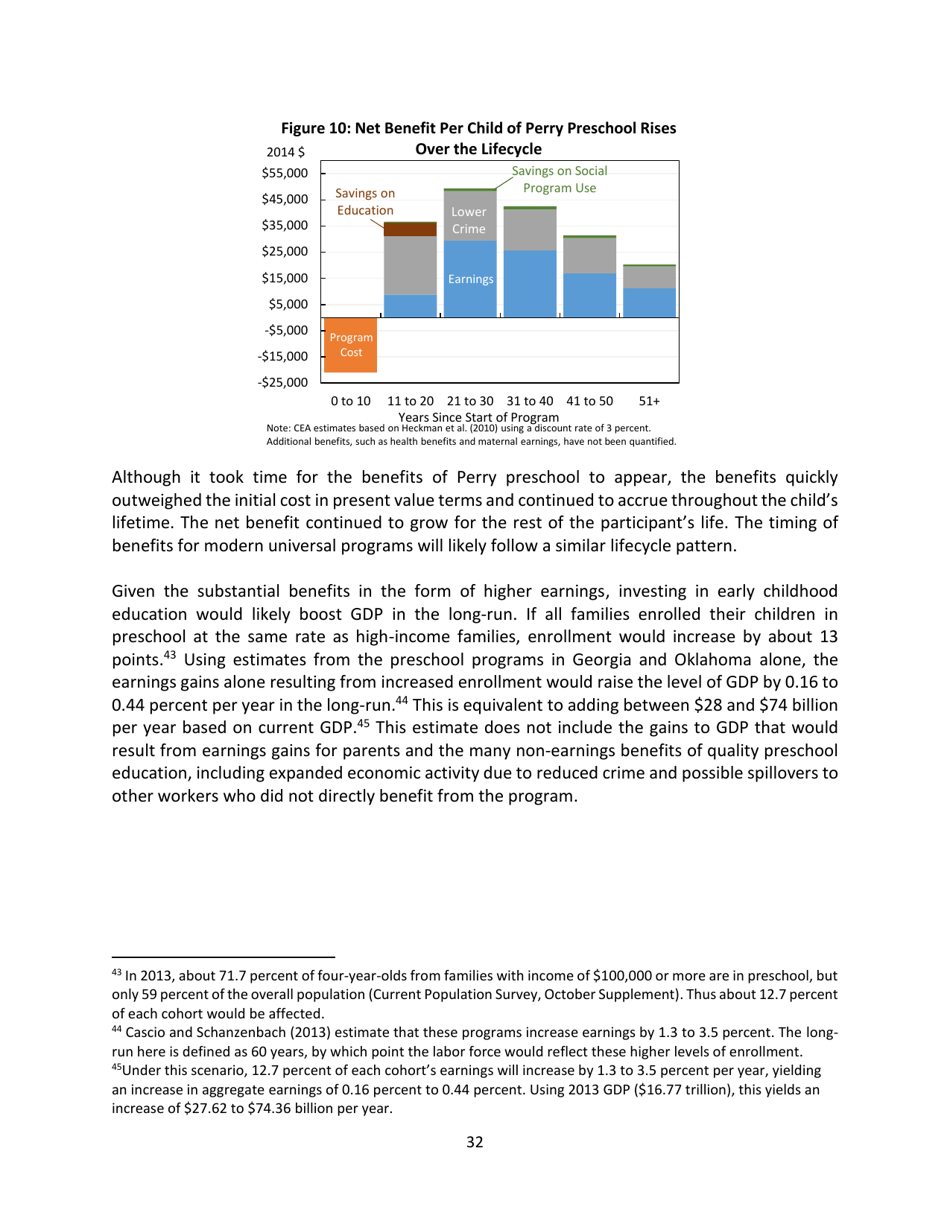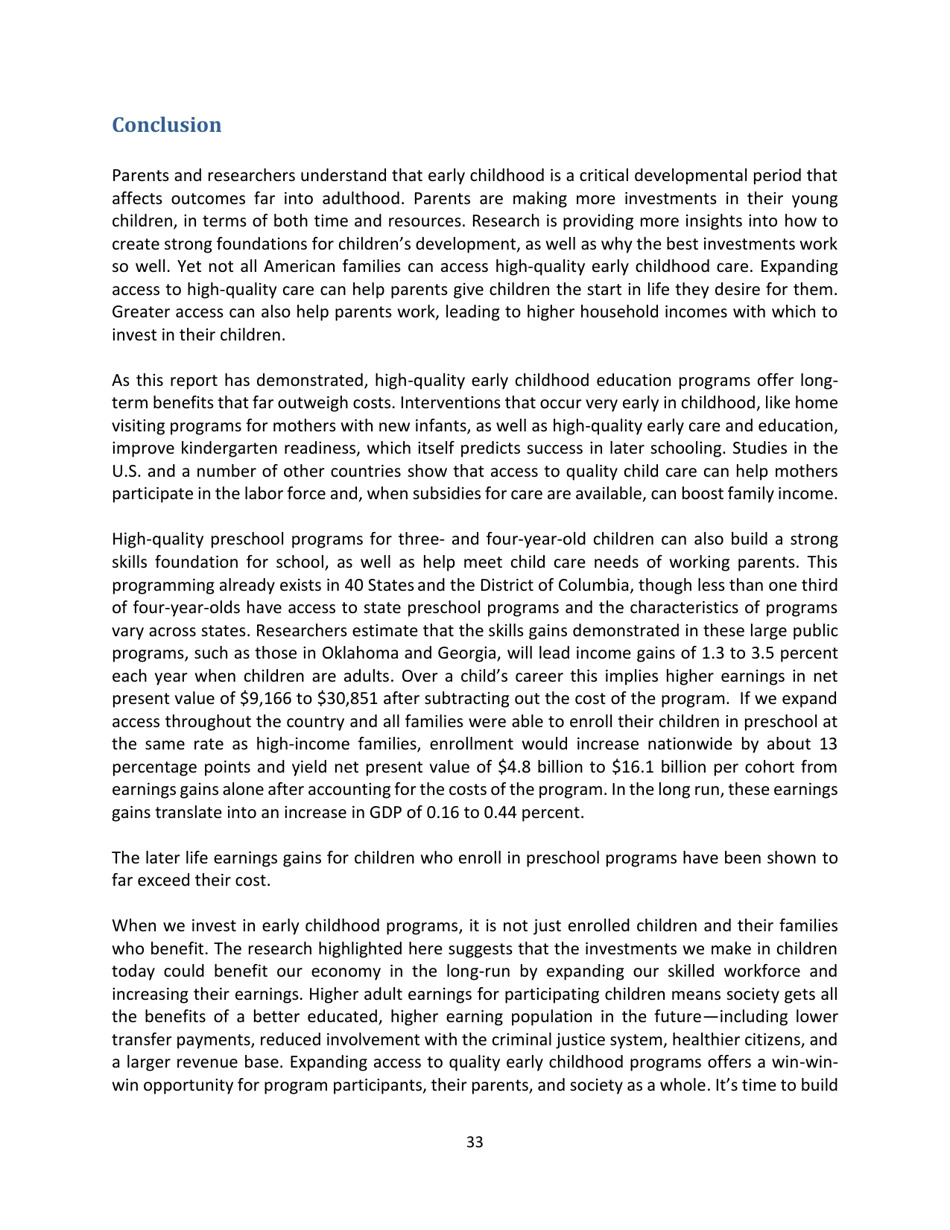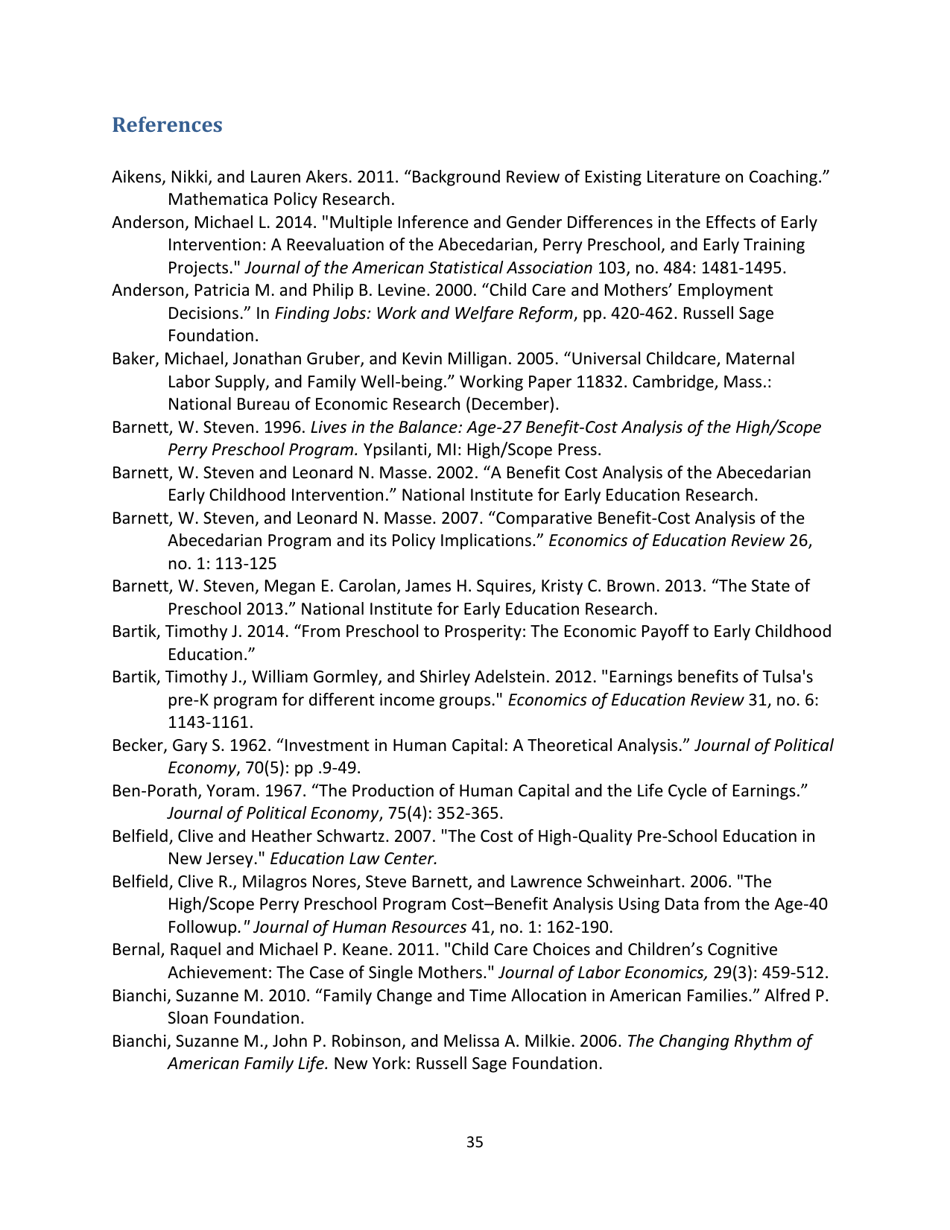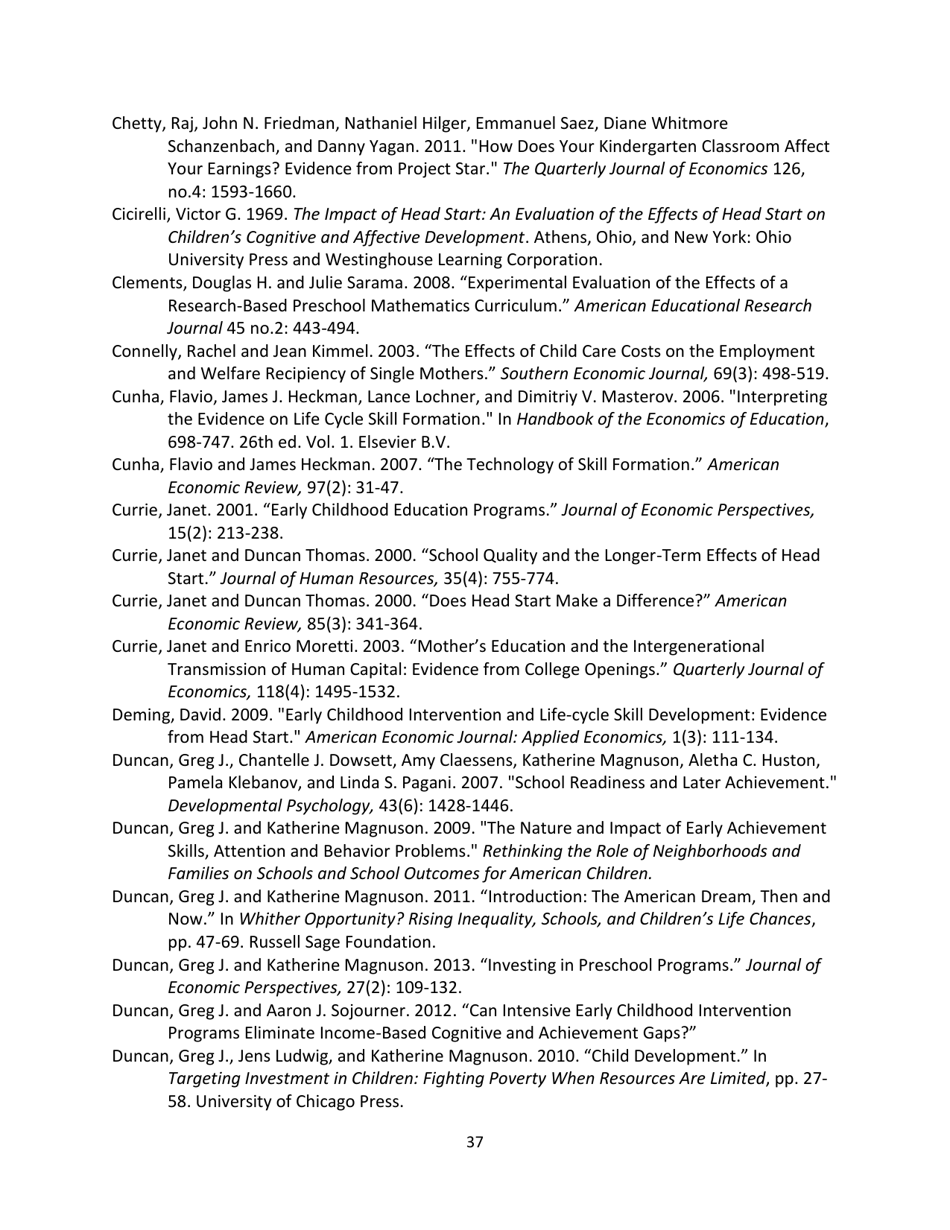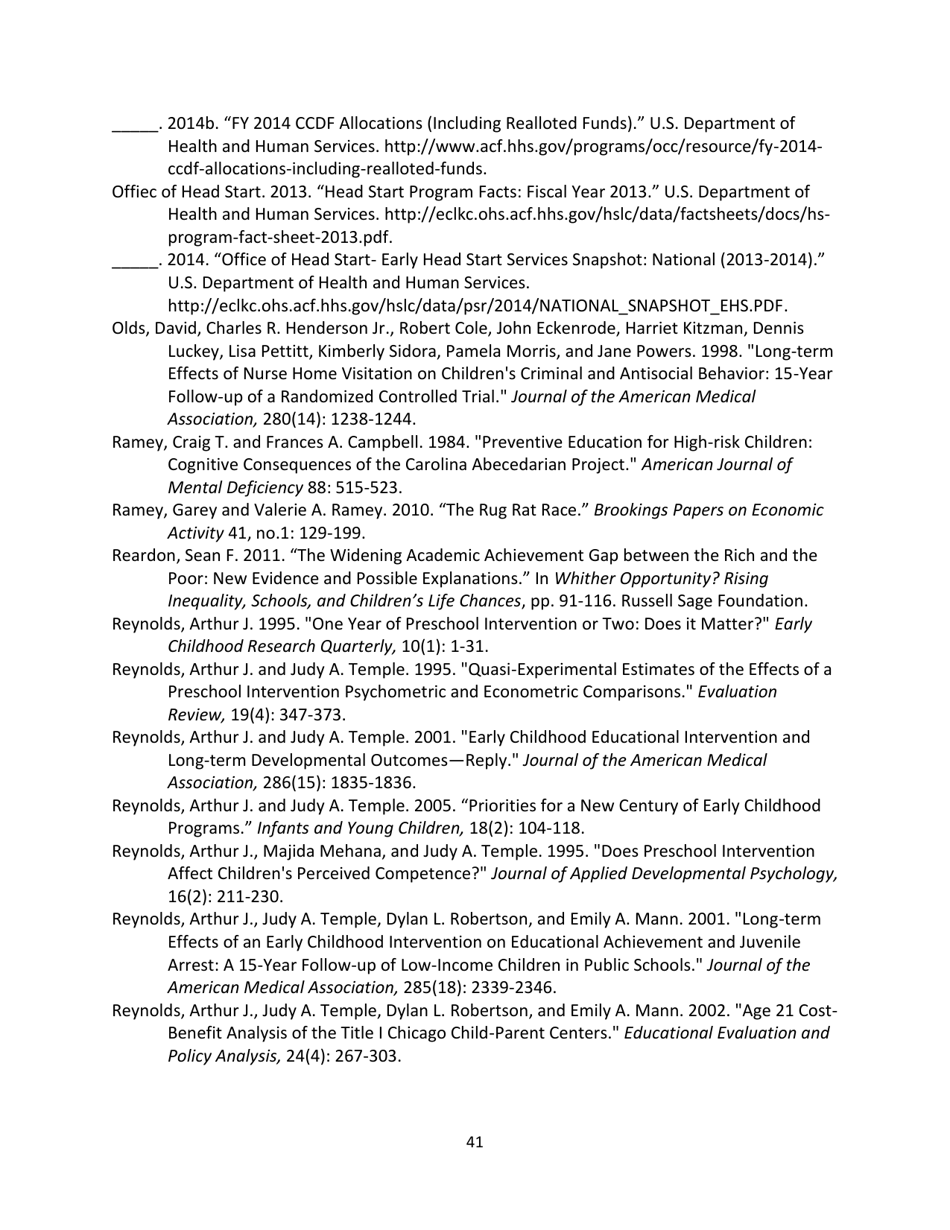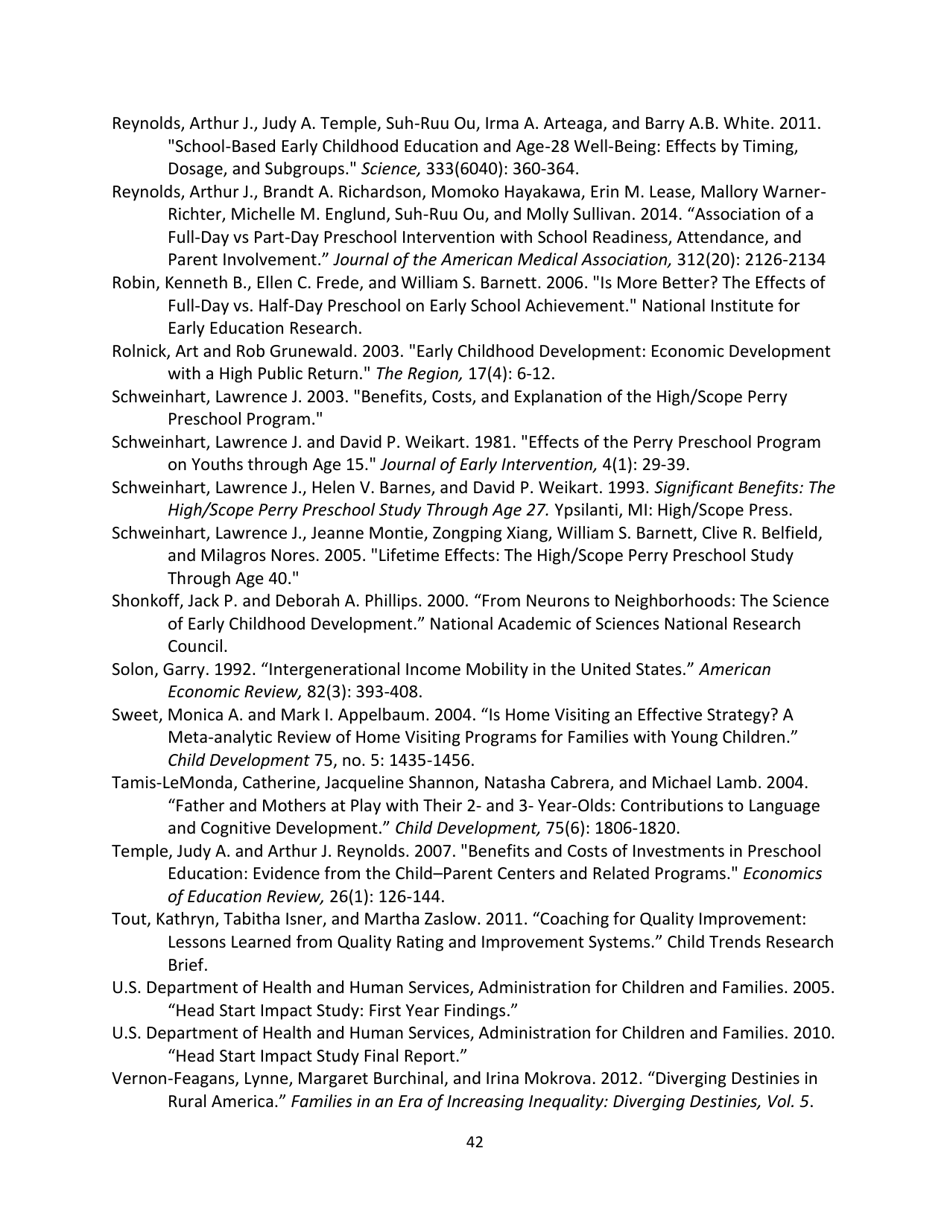The Economics of Early Childhood Investments
The Economics of Early Childhood Investments is a 43-page legal document that was released by the Executive Office of the President of the United States on December 10, 2014 and used nation-wide.
FAQ
Q: What are early childhood investments?
A: Early childhood investments refer to the resources, programs, and policies aimed at promoting the development and well-being of young children.
Q: Why are early childhood investments important?
A: Early childhood investments have long-term economic and social benefits. They can lead to higher educational attainment, improved health outcomes, and increased productivity.
Q: What are examples of early childhood investments?
A: Examples of early childhood investments include quality early education programs, access to healthcare services, support for parents and caregivers, and adequate nutrition.
Q: Who benefits from early childhood investments?
A: Early childhood investments benefit children, families, and society as a whole. By investing in young children, we can reduce inequality and improve social mobility.
Q: How do early childhood investments impact the economy?
A: Early childhood investments can lead to a stronger economy by increasing the future workforce's skills and productivity and reducing the need for costly remedial programs and social services.
Q: What is the economic return on early childhood investments?
A: Studies have shown that every dollar invested in early childhood can yield a return of up to $9 in long-term economic benefits, including higher earnings and lower social costs.
Q: Are early childhood investments a priority in the United States?
A: While there is growing recognition of the importance of early childhood investments, funding and support vary across states. Some states have made early childhood a priority, while others are still catching up.
Q: What policies support early childhood investments in the United States?
A: Policies supporting early childhood investments include funding for Head Start and Early Head Start programs, state-funded pre-K programs, and tax credits for families with young children.
Q: What can individuals do to support early childhood investments?
A: Individuals can support early childhood investments by advocating for increased funding, volunteering in early education programs, and spreading awareness about the importance of investing in young children.
Form Details:
- The latest edition currently provided by the Executive Office of the President of the United States;
- Ready to use and print;
- Easy to customize;
- Compatible with most PDF-viewing applications;
- Fill out the form in our online filing application.
Download a printable version of the form by clicking the link below or browse more legal forms and templates provided by the issuing department.
